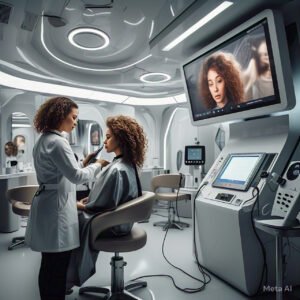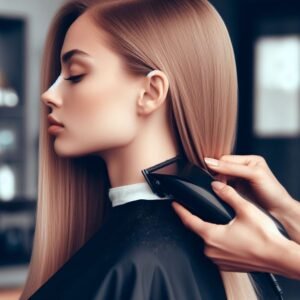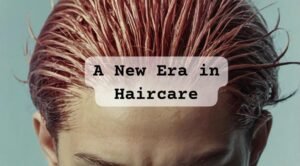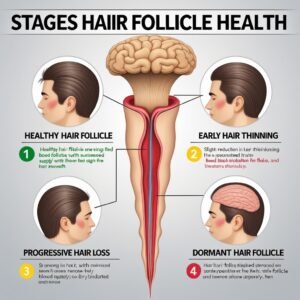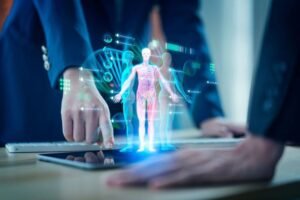1. Hair Health and Diet
Hair health solely relies on diet. The hair follicle is a highly proliferating organ that needs a constant input of nutrients in order to grow healthy and robust. Some necessary nutrients are
Proteins & Amino Acids: Hair is comprised primarily of keratin, constructed from amino acids in protein-rich foods such as eggs, fish, and beans.
Vitamins:
Biotin (B7): Required for hair growth, available in nuts, seeds, and eggs.
Vitamin D: Facilitates the functioning of the hair follicles, available in sunlight, milk products, and fish.
Vitamin A & C: Inhibits sebum formation and collagen construction, available in carrots, citrus fruits, and spinach.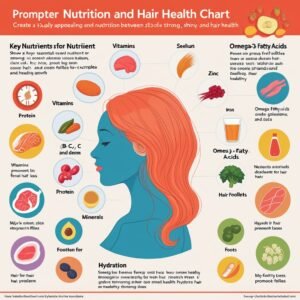
Minerals:
Iron: Thinning hair with low iron; red meat, spinach, lentils.i
Zinc: Hair follicle repair and growth; nuts and shellfish.
Omega-3 Fatty Acids: Healthy scalp and anti-inflammation; flaxseeds and fatty fish.
Malnutrition, deficiencies, and dehydration can lead to hair thinning, dryness, and slow growth.
2. AI-Driven Hair Health Solutions
Artificial Intelligence (AI) is transforming the way individuals track and enhance their hair health care with customized advice and intelligent diagnostics. Some of the most promising AI-based solutions are:
A. AI-Based Hair Analysis
Computer vision-enabled apps and devices use computer vision to analyze scalp health, hair density, and breakage.
Machine learning algorithms examine hair porosity, dryness, and damage from scanned or uploaded pictures.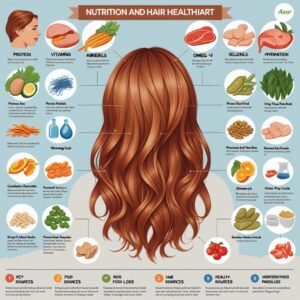
B. Personalized Nutrition & Supplement Plans
AI health platforms scan diet patterns and deliver personalized meal plans to aid hair health.
Apps monitor macro and micronutrient consumption to detect deficiencies impacting hair growth.
C. AI-Driven Hair Products
AI develops personalized hair products depending on the specific hair requirements, lifestyle, and diet.
Prose, Function of Beauty, and Loreal use AI to create personalized shampoo, conditioner, and serums.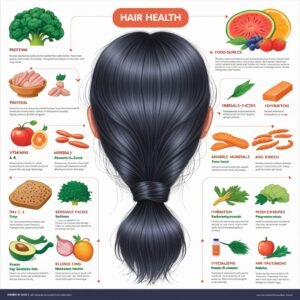
D. Predictive Prevention of Hair Loss
AI is able to forecast risks to hair loss from genetic information, dietary information, and lifestyle information.
There are also websites on the internet through which online consultancy with dermatologists is provided in order to avail early treatment.
3. The Future of AI and Hair Health & Diet
Smart wearables: Wearable devices to monitor nutrient levels and offer dietary change recommendations for hair growth.
Genetic-based hair grooming: AI will use genetic testing to provide personalized nutrition for hair care.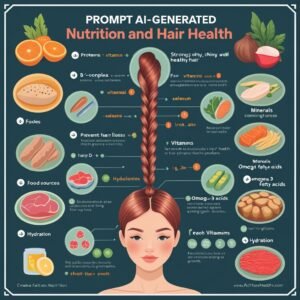
Live scalp monitoring: AI-powered scalp sensors to identify emerging hair health concerns and modify diet/supplemental requirements accordingly.
AI is closing the distance between science, nutrition, and beauty and making individualized hair care more effective and evidence-based.
